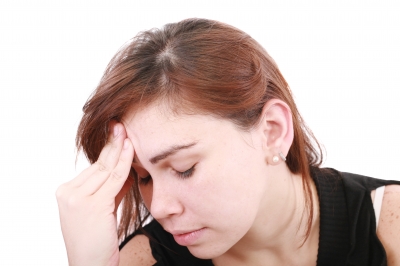In this talk, Andy Puddicombe speaks on the importance of taking care of our minds. He references scientific studies which claim that our minds are lost in thought 47% of the time and that mind-wandering is directly linked to unhappiness. Puddicombe stresses the mental health benefits of meditation, not only as a possible cure for stress, but also as a preventative measure. He argues that while “we can’t change every little thing that happens to us in life…we can change the way that we experience it.”
Category Archives: Health Psychology
Schizophrenia/Psychosis – Brain Disease or Existential Crisis?
 With the most recent schizophrenia/psychosis recovery research, we discover increasing evidence that psychosis is not caused by a disease of the brain, but is perhaps best described as being a last ditch strategy of a desperate psyche to transcend an intolerable situation or dilemma. To better understand how this conclusion which is so contrary to the widespread understanding of psychosis has come about, it will help if we break down this discussion into a short series of questions and answers.
With the most recent schizophrenia/psychosis recovery research, we discover increasing evidence that psychosis is not caused by a disease of the brain, but is perhaps best described as being a last ditch strategy of a desperate psyche to transcend an intolerable situation or dilemma. To better understand how this conclusion which is so contrary to the widespread understanding of psychosis has come about, it will help if we break down this discussion into a short series of questions and answers.
What? Schizophrenia may not be caused by a brain disease?
The emerging recovery research and continuous lack of substantiation of any of the various brain disease hypotheses have cast serious doubts about the validity of the brain disease theory Continue reading
Depression More Common Among Stroke Caregivers
A stroke is a health condition where the flow of blood to specific sections of the brain is interrupted. This predicament results in a reduction in the levels of oxygen and glucose that reach the brain cells, ultimately causing the death of these cells.
Researchers at Loyola University claim that caregivers for persons who have survived a stroke are at a higher risk of becoming diagnosed with depression than individuals without similar responsibilities. Continue reading
Police Officers and Stress Related Health Problems
 There is no doubt that policing is an extremely dangerous job. Policemen are regularly involved in perilous situations that might result in the deaths of the persons they are trying to serve, the deaths of the persons they are trying to stop or even the loss of their own lives. However recent research is now highlighting the fact that the inherent dangers associated with the job do not solely lurk out in the streets.
There is no doubt that policing is an extremely dangerous job. Policemen are regularly involved in perilous situations that might result in the deaths of the persons they are trying to serve, the deaths of the persons they are trying to stop or even the loss of their own lives. However recent research is now highlighting the fact that the inherent dangers associated with the job do not solely lurk out in the streets.
John Violanti, Ph.D., a research associate professor at the University at Buffalo School of Public Health and Health Professions, is leading an experiment to study the correlation between the stress of being a police officer and the occupation’s psychological and health related outcomes. The assumption that the exposure to death, the exposure to human suffering and the high demands experienced by police officers in the line of duty contribute to increased risks of cardiovascular diseases and other chronic ailments prompted the initiation of the five year experiment known as the buffalo cardio- metabolic occupational police stress (BCOPS) study. Dr. Violanti insists that this is the first police population based research to test such an association. Continue reading
Infographic – Occupational Therapists 101
 Occupational therapy is a holistic type of healthcare that focuses on maintaining, recovering, or improving patient skills to ensure they are able to perform meaningful activities throughout their life. More common practices include assisting children who have disabilities, helping recovering patients regain skills, and helping the elderly who are experiencing physical and mental changes.
Occupational therapy is a holistic type of healthcare that focuses on maintaining, recovering, or improving patient skills to ensure they are able to perform meaningful activities throughout their life. More common practices include assisting children who have disabilities, helping recovering patients regain skills, and helping the elderly who are experiencing physical and mental changes.
Occupational therapy dates back to ancient times when treatments such as therapeutic baths were used as an alternate form of medicine. But it wasn’t until WWI that occupational therapy started to become standard practice in the medical field. Continue reading
What is Health Psychology?
Health psychology can be defined as the study of how biological, environmental, psychological and sociocultural factors influence health, healthcare and illness. Continue reading




